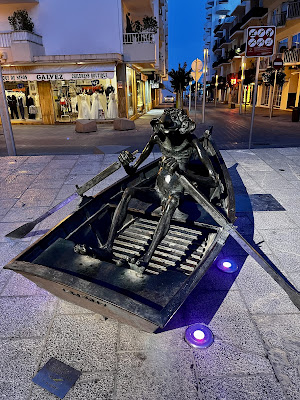Friday, 23 February 2024
Friday Five: Les Fameliars!
Tuesday, 20 February 2024
Prison Performance: Mad Blood Stirring
Simon Mayo’s first novel for adults
concerns a relatively unknown incident about a massacre at Dartmoor Prison
where American sailors were being held in 1815 after the end of the three
year-year conflict between the United States and Britain. The peace had not yet
been ratified and there were thousands of prisoners of war crammed into Dartmoor,
frustrated, angry and turning to violence. This much is true, and the novel is
packed with solid descriptions of prison life: crowded bunks; appalling food; general
boredom; thoughts of escape and political intrigues; and the constant backdrop
of fear and danger.
Inspired by true events, the detail is precise
including the initial march to the prison, the labour of snow-clearing, the smallpox
outbreak and vaccinations against it. The sailors are segregated by choice,
with the black sailors in Block Four, where they sing gospel songs and perform
plays which they take very seriously. King Dick ‘rules’ Block Four, and the Rough
Allies attempt to rule the rest, with violence and intimidation.
Sixteen-year-old
Joe takes on the role of Juliet in Romeo
and Juliet that is to be performed with great passion by the inmates of
Block Four, although they bowdlerize the text. The kiss between the lovers is fraught
with danger partly due to the homosexuality (punishable by flogging and further
brutality) and also because Joe is white, while Romeo, played by Habakkuk (Habs)
Snow is black. The title of the novel is taken from the opening scene of Act
Three of Romeo and Juliet, and here
implies but the growing unrest in the prison, and the illicit feelings that Joe
and Habs develop for each other.







